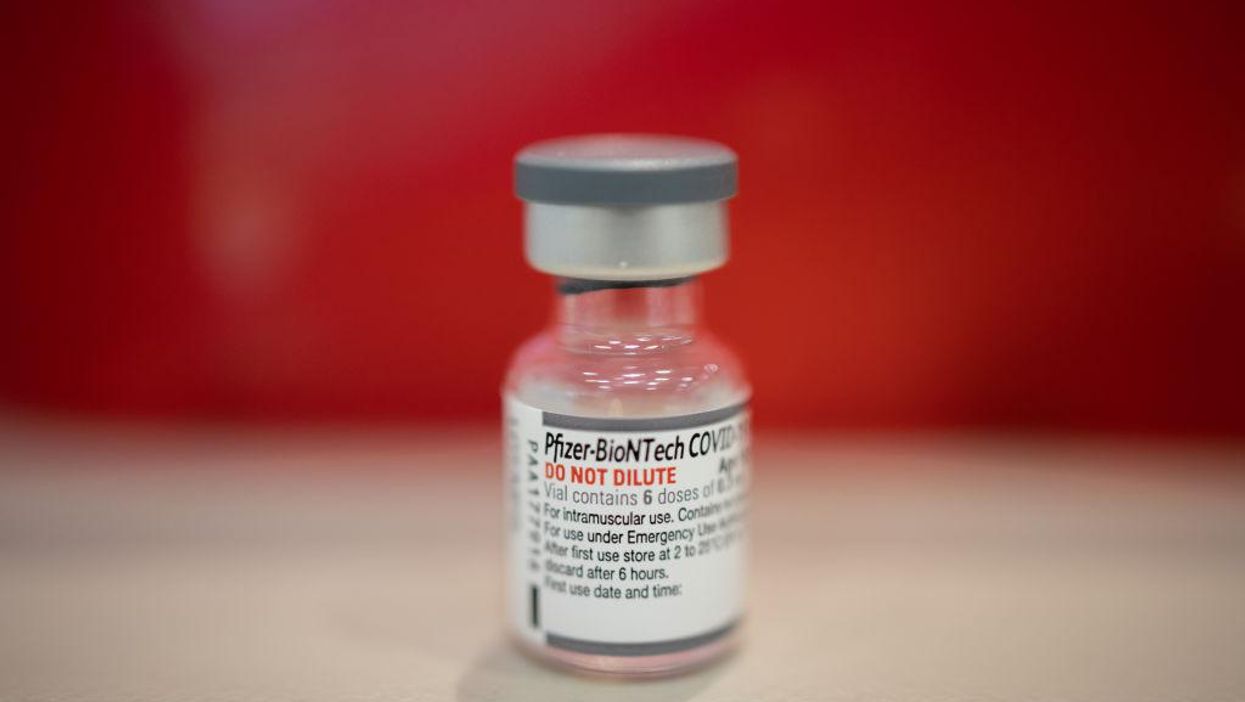
Hannah Beier/Bloomberg via Getty Images

The effectiveness of Pfizer and BioNTech's COVID-19 vaccine wanes rapidly against the Omicron variant, beginning to fade away as soon as three weeks after the second or third dose, a new study finds.
Researchers said that the antibody responses induced by a second and third dose of the vaccine were "transient" and that "additional booster doses may be necessary," although the vaccine still provides enough immunity to ward off hospitalization and death from COVID-19.
The Danish study, which was published in JAMA Network Open on Friday, examined 128 people who had received two or three doses of Pfizer/BioNTech's mRNA vaccine.
Scientists observed that the number of "neutralizing" antibodies induced by the vaccine that target the Omicron variant declined rapidly within weeks of taking the second and third shots. Antibodies attack the virus and stop it from replicating, which protects the body against infection and disease.
The study examined the antibody response in vaccinated patients to different strains of the coronavirus, including the original and Delta variant strains. Within four weeks of the second Pfizer/BioNTech dose, the concentration of Omicron-specific antibodies found in patients' blood was 14-fold lower than antibodies against the original virus strain.
Compared to the original and Delta variants, the proportion of Omicron-specific neutralizing antibodies fell "rapidly" from 76.2% four weeks after the second shot to 53.3% at weeks eight to 10, and then 19% at weeks 12 to 14, the researchers said.
After a third dose, Omicron-specific antibodies increased nearly 21-fold at week three and nearly 8-fold at week four, compared to antibody levels observed four weeks after the second dose.
However, antibody levels dropped between the third week and the eighth week after the third dose, with a 4.9-fold drop for the original strain, 5.6-fold for Delta, and 5.4 fold for Omicron observed.
This means that the number of antibodies the vaccine teaches the body to make to fight COVID-19 drops off as soon as four weeks after the second shot and three weeks after the third. Lower antibody levels offer less protection against the virus, which explains why people who have been fully vaccinated with two shots or have only had one booster may still get breakthrough Omicron infections.
The researchers say that additional booster shots may be needed to keep Omicron-specific antibody levels high and protect against disease, especially in older people.
Previous studies have shown that protection against infection offered by COVID-19 vaccines begins to wane after about six months. Older Americans, who are more vulnerable to severe disease, have been encouraged by public health officials to take vaccine booster shots to strengthen their antibody response to the virus.
According to U.S. Centers for Disease Control and Prevention data, about 69% of U.S. adults over age 65 have received a booster dose, while nearly 91% have completed their primary COVID-19 vaccination schedule.
The U.S. Food and Drug Administration in March authorized a second booster shot for Americans over the age of 50, citing evidence that suggested vaccine protection wanes over time and that older and immunocompromised people need additional protection offered by a fourth dose.